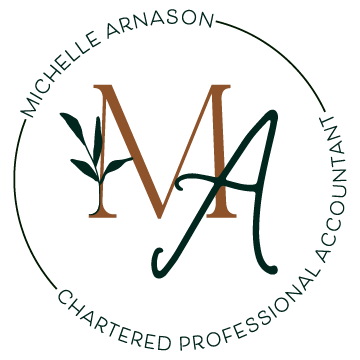Personal Service Businesses
Personal Service Businesses (PSBs) are a distinct category of businesses in Canada with unique tax implications. They are defined by the Canada Revenue Agency (CRA) based on specific criteria that differentiate them from other types of businesses. In this blog post, we'll delve into the CRA's criteria for classifying a business as a personal service business and explore the tax implications that come with this classification.
Understanding CRA Criteria for Personal Service Businesses:
The CRA uses specific guidelines to determine if a business falls under the category of a personal service business. To be considered a PSB, the following criteria must be met:
1. Service Provision: The primary activity of the business must involve providing services, and these services must be performed by an individual, not a corporation.
2. Limited Number of Clients: The business must have a limited number of clients or customers. There is no strict definition of "limited", but the CRA typically considers a business with one main client or a small number of major clients as falling within this criterion.
3. Lack of Substantial Capital Investment: The business must not require significant capital investment in assets to perform its services. Instead, the services are predominantly reliant on the skills, expertise, and knowledge of the individual providing them.
4. Minimal Number of Employees: A PSB should have minimal, if any, employees directly involved in service provision. The CRA aims to distinguish PSBs from businesses that primarily operate through employee labor rather than individual expertise.
5. Personal Services: The services provided must be of a personal nature, meaning they are predominantly based on the skills, experience, and expertise of the individual providing them. The focus is on the "personality" of the service provider rather than standardized services.
Tax Implications of Being Classified as a Personal Service Business:
1. Restricted Access to Small Business Deductions: PSBs do not qualify for the small business deduction, which offers a reduced corporate tax rate on the first portion of active business income. As a result, PSBs are subject to higher corporate tax rates, potentially leading to a higher tax liability.
2. Limited Business Expense Deductions: PSBs have restrictions on certain business expense deductions. Expenses related to rent, utilities, and certain professional fees may be disallowed or limited, impacting the business's overall tax position.
3. Income Splitting Restrictions: The CRA has introduced rules to limit income splitting opportunities for PSBs. Income earned by the business is typically attributed to the individual providing the services, making it challenging to allocate income to family members or individuals in lower tax brackets.
4. Loss Limitations: PSBs have limitations on utilizing business losses to offset other income. Losses incurred by a PSB can only be carried forward and applied against future income from the same PSB, not against income from other sources.
Personal Service Businesses in Canada are subject to distinct criteria established by the CRA, which aim to identify businesses primarily reliant on the individual's skills and expertise. With limited access to small business deductions, restrictions on business expense deductions and income splitting, and higher corporate tax rates, PSBs face unique tax implications.
It is essential for individuals involved in businesses that may fall under the PSB classification to understand these criteria and the potential tax implications. Seeking professional advice from a tax expert can help navigate the complexities of the tax system, ensure compliance, and develop tax-efficient strategies within the framework of a personal service business. By staying informed and planning ahead, business owners can effectively manage their tax obligations and focus on the growth and success of their business.

